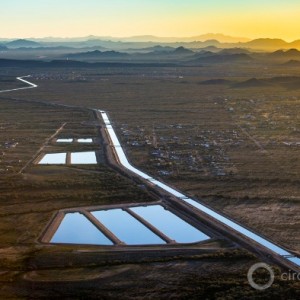Federal Water Tap, June 8: Senate Committee Discusses Western Drought
The Rundown
Drought and water challenges go beyond California, senators learned. The EPA released a draft study of fracking’s effect on drinking water. House Transportation Committee reviews a water infrastructure bill that was signed last year. Florida and Georgia are urged to settle water dispute.
“We need to be as long-term in our view as possible. If this is the new normal, we have a lot of work to do.” — Sen. Lisa Murkowski (R-AK), chair of the Senate Energy and Natural Resources Committee, speaking during a committee hearing about legislation to address drought in the western United States.
By the Numbers
1,000: Pages in the U.S. Environmental Protection Agency’s draft report on hydraulic fracturing and drinking water resources. (EPA)
147: Number of chemicals, out of 1,173 identified by the EPA in fracking fluid and wastewater, that were included in the agency’s study. The rest, some 87 percent, did not have sufficient scientific information on toxicity. (EPA)
Reports and Studies
EPA Fracking Report
The U.S. Environmental Protection Agency did not find “widespread, systemic impacts on drinking water resources” because of hydraulic fracturing, or fracking, according to a draft scientific analysis. However, the agency did find instances in which drinking water supplies, including wells, were contaminated.
The study, though the EPA claims it is the most comprehensive national assessment to date of fracking and drinking water, was bedeviled by data gaps: from the location of domestic wells to data on water quality, chemical toxicity, and the number of fracked wells. The absence of water quality data both before and after fracking is a large hole:
“The limited amount of data collected before and during hydraulic fracturing activities reduces the ability to determine whether hydraulic fracturing affected drinking water resources in cases of alleged contamination,” according to the executive summary. “There is insufficient pre- and post-hydraulic fracturing data on the quality of drinking water resources. This inhibits a determination of the frequency of impacts.”
The study examined not only fracking. It also assessed the entire water cycle associated with the controversial drilling technique: from water acquisition to injection to the collection, treatment, and disposal of wastewater.
“The study is a foundation for future decisions,” said Tom Burke, science adviser and deputy assistant administrator of EPA’s Office of Research and Development.
The study is a draft. See below for ways to comment.
News Briefs
Drought Hearing
Senate drought legislation will not focus only on the emergency in California, according to statements at a Senate Energy and Natural Resources Committee hearing.
“We need a broader drought bill,” said Lisa Murkowski (R-AK), committee chair. “The focus needs to be western-wide.”
Others applied the broader approach to the economics of drought.
“We’re going to see this one way or another,” said Maria Cantwell (D-WA), referring to investment in drought preparation now versus paying for losses later, from farm payments to wildfire costs and welfare assistance.
California Drought
Narrower legislation may also be in the docket and would be wrapped into the broader drought bill.
In an op-ed published in the Los Angeles Times, Dianne Feinstein (D-CA) said that she would soon introduce a California drought bill. The bill will focus on ways to expand water storage, recycling, and desalination, as well as move water from the Sacramento-San Joaquin Delta to farms and cities in the Central Valley and Southern California. Sections of the bill will also address ecosystem restoration, according to Feinstein.
Florida v. Georgia
The two states should seek a settlement over a water dispute in a shared watershed, according to the lawyer appointed by the U.S. Supreme Court to preside over the case, the Atlanta Journal-Constitution reports. Florida sued Georgia last year over fresh water flows in the Apalachicola-Chattahoochee-Flint Basin.
On the Radar
Water Infrastructure Hearing
On June 10, the House Transportation and Infrastructure Committee will review the progress of a $US 12.3 billion bill that passed a year ago and funded dozens of projects at the nation’s ports, levees, dams, and locks. The leaders of the U.S. Army Corps of Engineers, which builds and manages many of the projects, will testify.
EPA Fracking Study Meetings
The EPA’s science advisory board will hold three teleconferences and a three-day meeting, all open to the public, to discuss the agency’s draft report on hydraulic fracturing and drinking water supplies. The meetings will take place in September and October. To comment or attend the meetings, see the link above or contact Edward Hanlon at hanlon.edward@epa.gov.
Federal Water Tap is a weekly digest spotting trends in U.S. government water policy. To get more water news, follow Circle of Blue on Twitter and sign up for our newsletter.
Brett writes about agriculture, energy, infrastructure, and the politics and economics of water in the United States. He also writes the Federal Water Tap, Circle of Blue’s weekly digest of U.S. government water news. He is the winner of two Society of Environmental Journalists reporting awards, one of the top honors in American environmental journalism: first place for explanatory reporting for a series on septic system pollution in the United States(2016) and third place for beat reporting in a small market (2014). He received the Sierra Club’s Distinguished Service Award in 2018. Brett lives in Seattle, where he hikes the mountains and bakes pies. Contact Brett Walton






Leave a Reply
Want to join the discussion?Feel free to contribute!